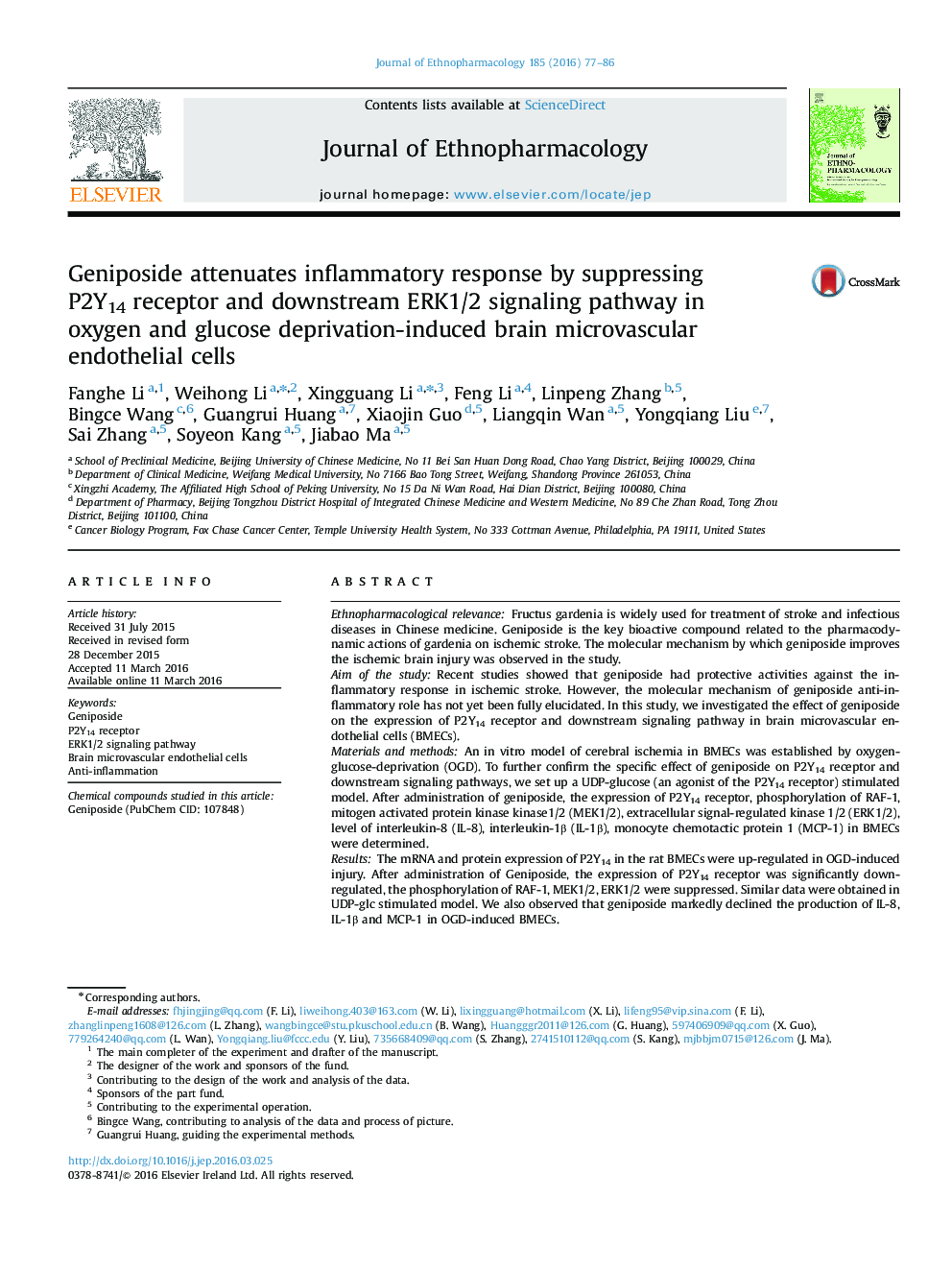| Article ID | Journal | Published Year | Pages | File Type |
|---|---|---|---|---|
| 2544829 | Journal of Ethnopharmacology | 2016 | 10 Pages |
Ethnopharmacological relevanceFructus gardenia is widely used for treatment of stroke and infectious diseases in Chinese medicine. Geniposide is the key bioactive compound related to the pharmacodynamic actions of gardenia on ischemic stroke. The molecular mechanism by which geniposide improves the ischemic brain injury was observed in the study.Aim of the studyRecent studies showed that geniposide had protective activities against the inflammatory response in ischemic stroke. However, the molecular mechanism of geniposide anti-inflammatory role has not yet been fully elucidated. In this study, we investigated the effect of geniposide on the expression of P2Y14 receptor and downstream signaling pathway in brain microvascular endothelial cells (BMECs).Materials and methodsAn in vitro model of cerebral ischemia in BMECs was established by oxygen-glucose-deprivation (OGD). To further confirm the specific effect of geniposide on P2Y14 receptor and downstream signaling pathways, we set up a UDP-glucose (an agonist of the P2Y14 receptor) stimulated model. After administration of geniposide, the expression of P2Y14 receptor, phosphorylation of RAF-1, mitogen activated protein kinase kinase1/2 (MEK1/2), extracellular signal-regulated kinase 1/2 (ERK1/2), level of interleukin-8 (IL-8), interleukin-1β (IL-1β), monocyte chemotactic protein 1 (MCP-1) in BMECs were determined.ResultsThe mRNA and protein expression of P2Y14 in the rat BMECs were up-regulated in OGD-induced injury. After administration of Geniposide, the expression of P2Y14 receptor was significantly down-regulated, the phosphorylation of RAF-1, MEK1/2, ERK1/2 were suppressed. Similar data were obtained in UDP-glc stimulated model. We also observed that geniposide markedly declined the production of IL-8, IL-1β and MCP-1 in OGD-induced BMECs.ConclusionGeniposide exerted anti-inflammatory effects by interfering with the expression of P2Y14 receptor, which subsequently inhibits the downstream ERK1/2 signaling pathways and the release of the pro-inflammatory cytokines IL-8, MCP-1, IL-1β. Therefore, this study provides the evidence for gardenia's clinical application in cerebral ischemia.
Graphical abstractFigure optionsDownload full-size imageDownload high-quality image (150 K)Download as PowerPoint slide
